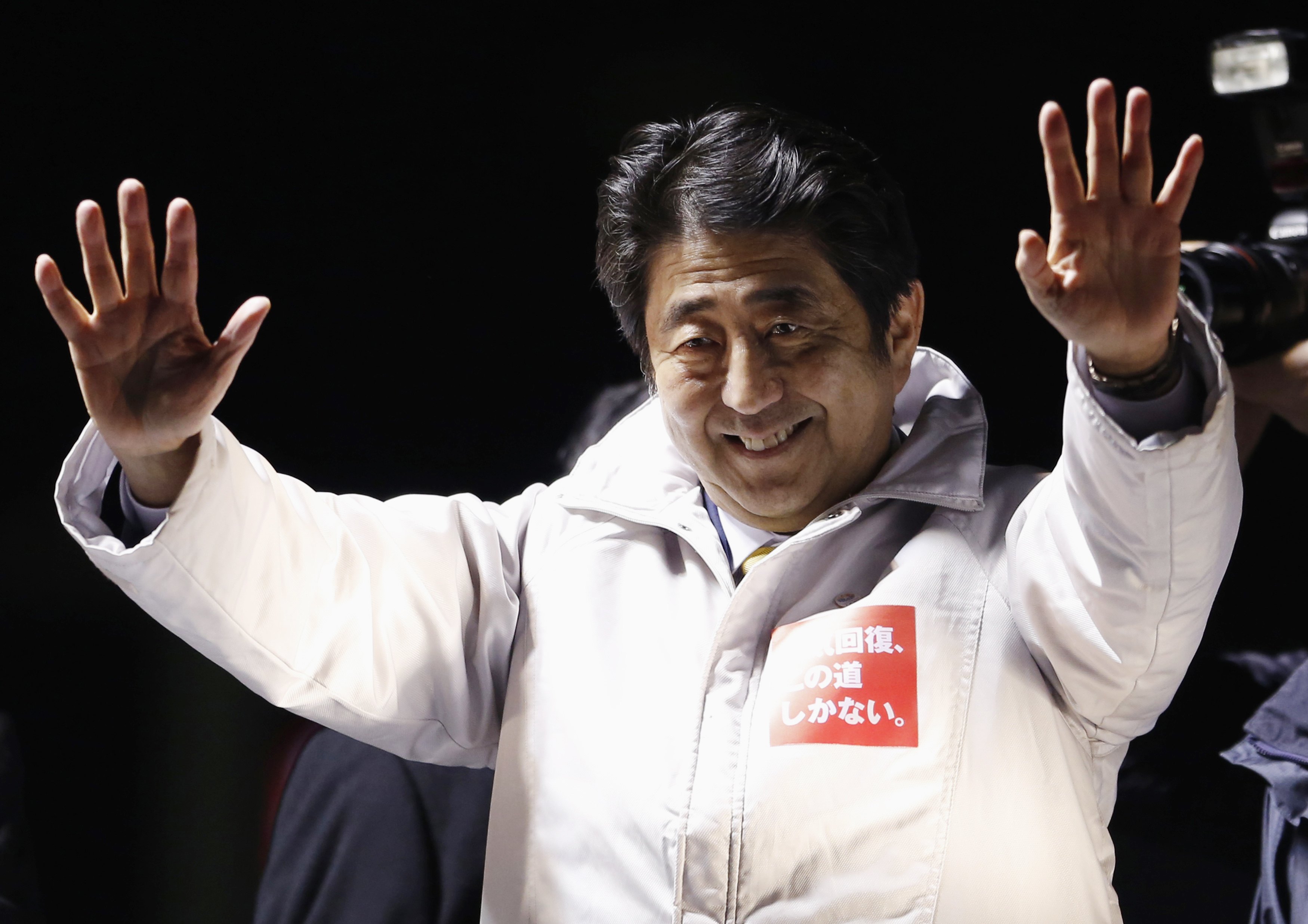Prime Minister Shinzo Abe is signaling that retooling Japan's economy with painful structural reforms must take a back seat to reviving growth, even though he is poised to win a big "referendum" on his economic policies in an election Sunday that might set a new record for low turnout.
In the three weeks since he delayed a sales tax hike and called the election, Abe has shifted the debate from curbing the government's runaway debt to finding ways to stimulate the economy and put more money in the hands of voters — especially those outside major cities.
For example, policymakers say they are considering shopping vouchers for lower-income earners that would cover a portion of the cost of goods and services. Such handouts would resemble the big-ticket vouchers and tax breaks offered during the global financial crisis to boost sales of energy-efficient cars, appliances and housing, officials said. Those measures had a multiplier effect on spending but were followed by a pullback when the giveaways expired.

















With your current subscription plan you can comment on stories. However, before writing your first comment, please create a display name in the Profile section of your subscriber account page.